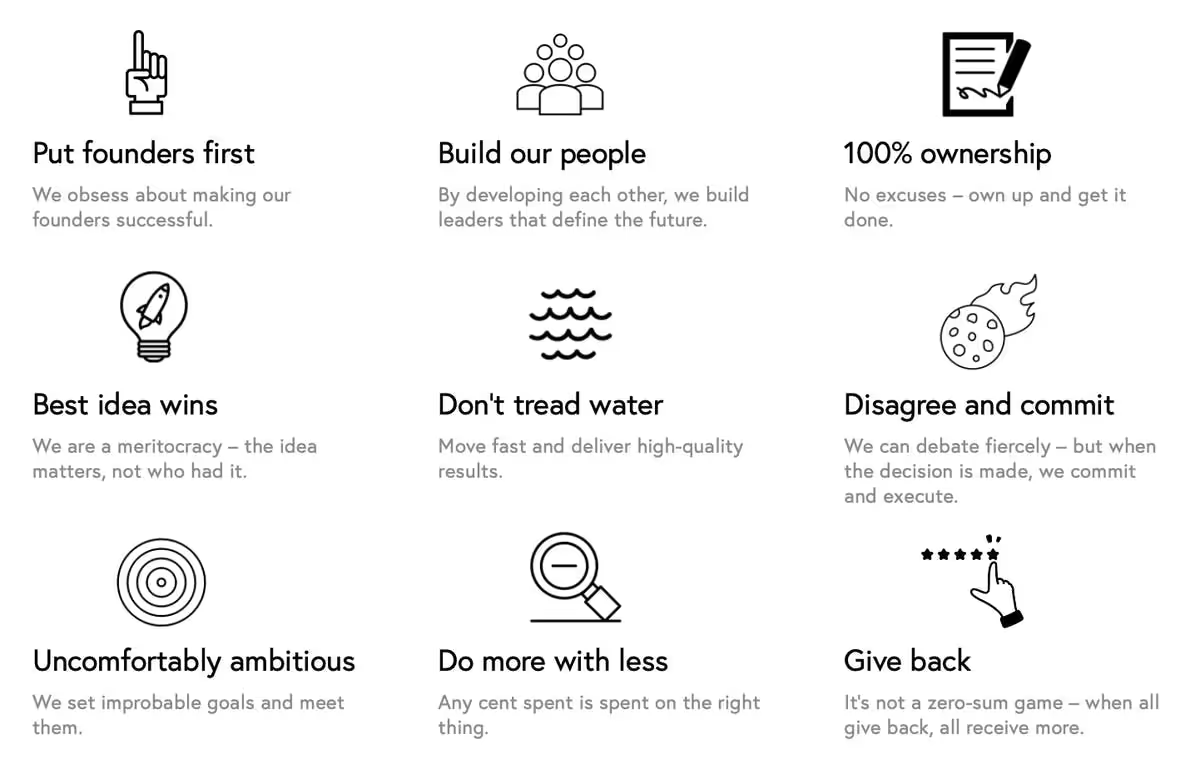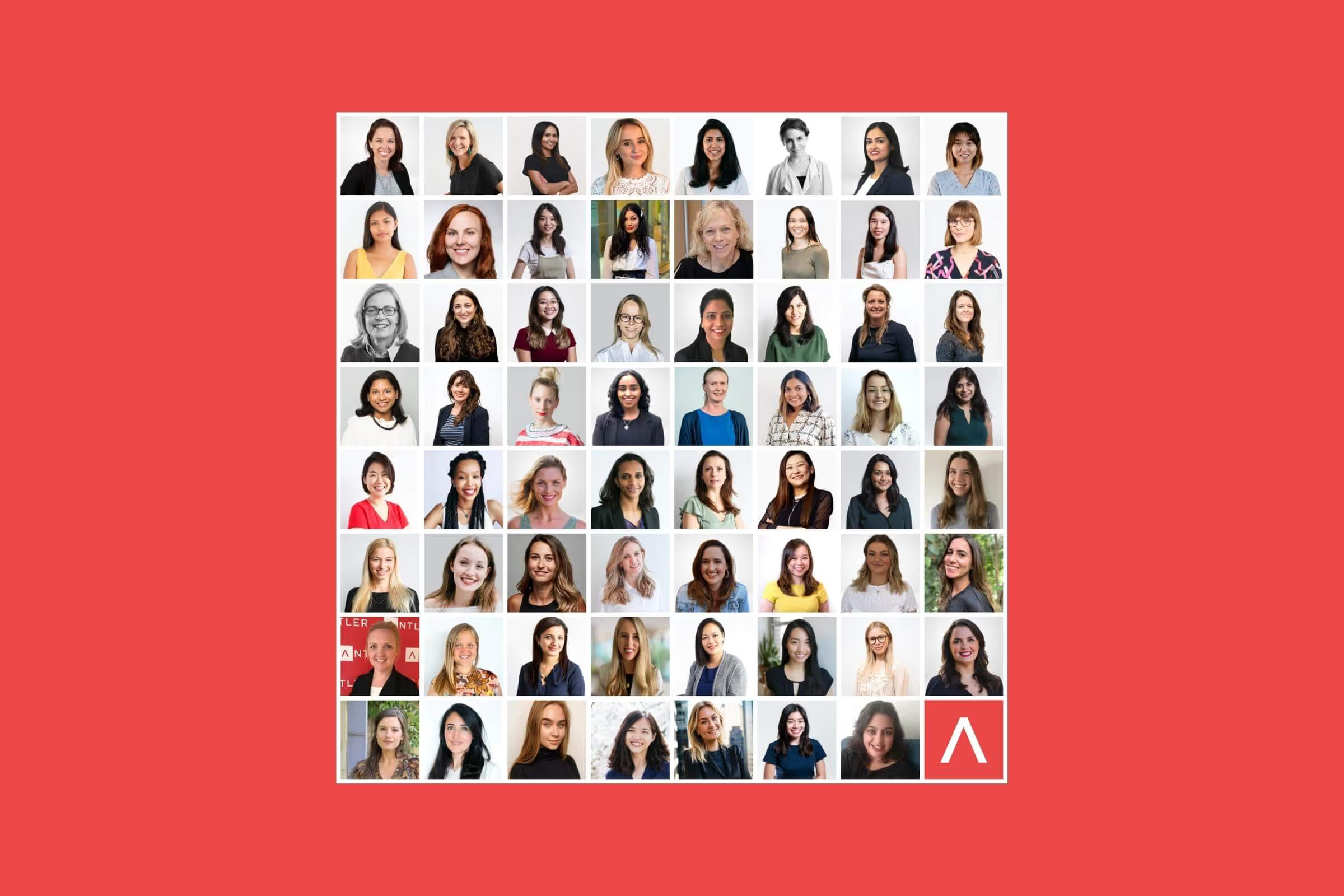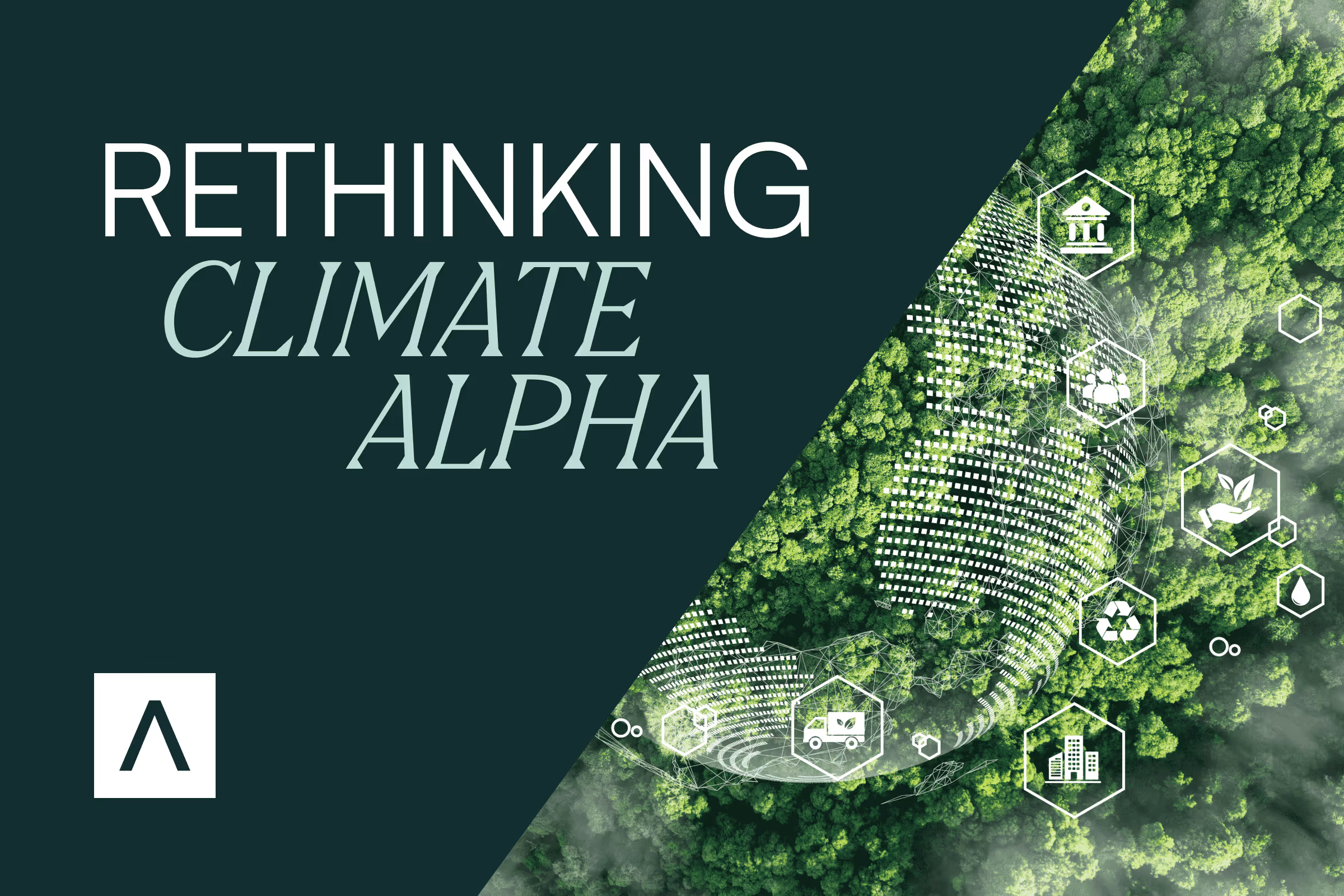Defining culture - the why that guides the how
Culture in any company is a reflection of the way people act. It is reflected in the way each team member carries out their work, communicates with their peers and works as a cohesive team.
It is what we do, what we say, the way we behave, the way we treat each other, and all the stakeholders involved - our founders, investors, and advisors.
— DILAN MIZRAKLI LANDGRAFF, CO-FOUNDER, CHIEF OF STRATEGY AND PEOPLE & CULTURE OFFICER AT ANTLER
Since 2017, Antler has created a distinct culture in the way it operates based on nine guiding principles (see graphic). These principles will evolve as the company grows.
Women represent 42% of Antler's leadership team and we have over 30 nationalities represented in our 12 locations globally. Every Antler team member has a clear and easily identifiable strength--- the synergy of these diverse mindsets works really well together.
Principles define the way we work and guide us when making decisions, big or small. These principles are further emphasized in almost all town halls and all-team meetings. Acknowledgment and recognition is given to employees who show exemplary behaviour that reflects the principles in various scenarios and events, and there is a strong emphasis on ownership of all tasks to bring out the in-trepreneur in every team member. Antler team members are given the freedom to create and come up with new ideas and innovative ways of doing things.
We believe that a strong culture will only 'stick' if it is incorporated into the employee lifecycle, therefore, we strive to incorporate these principles throughout the employee life cycle: from recruitment to onboarding, from development to incentives, engagement, retention, and even offboarding.
— DILAN

Build Our People
One of our principles is to Build Our People. We do everything to make team members feel like they belong to a community and are part of something larger than themselves. Being genuine and giving people a common cause and mission has been the most important factor in building our collaborative community-like culture within Antler. The human element is central to all that is done at Antler--your individuality, domain expertise, passion, lifestyle and other interests play a role in how you perceive, communicate and create within your environment.
The approach to diversity stems from Antler's mission. Antler exists to fundamentally improve the world by enabling and investing in the world's most exceptional people to build the defining companies of tomorrow that will solve the world's biggest challenges.
Diversity has always been second nature to us. I am a Turkish female investor. I am a world citizen that wants to make the world a better place. Thus, when we hire internally, we are looking for world citizens who want to enable founders to solve the biggest problems of the world and assess them purely merit-based. Such an approach has organically resulted in a diverse team says.
— DILAN
Having a "one company" approach as we scale
As a company grows, culture needs to be looked at as an evolving, organic, living entity. Therefore, on an annual basis, a culture audit takes place. Throughout the year, regional culture workshops are conducted, feedback is gathered and action is taken based on what is needed to better the organisation.
A 'one company' approach is incredibly important when creating and strengthening a company culture. When all team members understand and feel they are part of the bigger picture, they will start building their own sense of ownership and belonging. When each one can clearly see their personal contribution to the mission and vision of the company, it enables them to develop their own purpose. To use Simon Sinek's golden circle example, their personal 'why'.
When scaling, it's vital to hold on to an approach of transparency and inclusion, ensuring people feel that although they might not have as frequent access to senior management, they are still feeling they are aware of the company strategy and expected to contribute to the core business.
— LOTTA PATRICKSON, DIRECTOR OF PEOPLE & CULTURE AT ANTLER
According to Lotta, the best leaders understand that they are CROs (Chief Repeating Officers)- those who are constantly reiterating the organization's culture, strategy and priorities.
The way to make employees feel like they are part of the community and are part of something larger than themselves is to ensure leaders get to know their individual team members enough to know how to involve them and create an engaging environment. Each employee experience is unique and leaders need to understand the importance of connecting with people one on one.
— LOTTA
As companies scale, great thought and care should be focused on building connective tissue across disparate geographies and markets with intention and purpose. Purpose is not just language that reads beautifully on company websites or lives solely in nice frames around the office. It has practical implications for a company's competitiveness and enterprise health.
Talented professionals who find meaning in their work emanate positive energy. They are resilient in the face of adversity and inspire others to aspire. Employees who connect with the company's purpose at a profound level go above and beyond. They stretch to deliver outsized impact, and in doing so, get comfortable stretching. In time, it becomes a virtuous cycle of increasing impact and professional fulfillment at the individual level.
— DAVE CHEONG, ASSOCIATE PARTNER AND HEAD OF EXECUTIVE TALENT ACQUISITION AT ANTLER
External studies in this space suggest that as leaders manifest higher purpose, they can galvanize a team to be larger than the sum of its part, to punch well above their collective weight. According to Dave, when leadership communicates purpose with authenticity, it resonates. If it resonates, people are likely to have feelings of kinship, of being part of a bigger team, a family.
The complex nature of diversity
Diversity is a complex, nuanced, and layered concept and is not just about gender, race and age. These are often great places to start depending on an organization's journey, but there are many other layers emerging.
For instance cognitive diversity, which you observe in candidates coming from different socio-economic, educational, and professional backgrounds. Diversity does not just happen. Legacy processes, practices, mindset, conscious and unconscious bias are complex layers to peel through and solve for.
— DAVE
Here's a thought experiment: how much cognitive diversity might one expect from a group of professionals who might be diverse in gender, nationality, and race but who all attended similar elite schools, worked at leading global financial institutions, and have generally grown up in the same professional and social circles to date? They may well be in a bubble and echo chamber that prevents open minded discussion and diversity of thought.
So how can someone improve or increase their diversity quotient? One has to be open to different ways of thinking, working and phases of lives. If it's a colleague who is a parent of young children and needs to block off certain times of the day, this needs to be acknowledged and understood. If there is a certain time of the day you need to block off for exercise and or anything that you prioritise, that needs to be respected. There is also a certain cultural understanding that needs to be respected in certain places, where messaging about work during certain hours is frowned upon, and holiday and down time is considered sacred.
Then there is the concept of "acquired diversity"- ways of thinking acquired by experience. An example of this would be cross-cultural competence, an ability to relate and connect with people, colleagues, and partners from different countries and cultures. As Antler has established offices and funds across five continents in twelve cities - with aspirations for further broadening our global footprint - being cross-culturally fluent takes on a certain prominence.
While diversity is important, building a culture of trust to fully harvest the benefits of diversity is a challenging proposition that needs to be tackled
One of the most important challenges we have to tackle is how to create a psychological safety net where people feel comfortable being themselves, speaking up for what they believe in and thrive on their own unique strengths. For this we need to ensure we hire and develop truly amazing leaders that can instill this culture of trust and inclusion.
— LOTTA











